Nancy Pelosi’s visit to Taiwan was reckless and stupid, but why does anyone care? More important is what is driving American aggressive and incoherent policy towards China. Paul Jay is interviewed by Colin Bruce Anthes on theAnalysis.news.
Colin Bruce Anthes
Welcome to theAnalysis.news. I’m Colin Bruce Anthes. A Canadian educator, activist and organizer with Community Wealth Candidates. In a few seconds, we’ll be talking to Paul Jay about Nancy Pelosi’s visit to Taiwan.
Why do you think Nancy Pelosi is making this trip to Taiwan? How dangerous is it? How concerned should we be?
Paul Jay
Thanks, Colin. As you know, President Xi Jinping had warned Biden before Pelosi’s trip that people who play with fire will get burned. So it’s not a surprise then that China followed up on her visit to Taiwan with a show of force.
According to the Global Times, which generally speaks for the Chinese government in English, “the Chinese People’s Liberation Army, the PLA, on Thursday commenced the second phase of its large-scale military exercises that completely locked down the island of Taiwan and began to use live fire.” Global Times continues that this followed U.S. House speaker Nancy Pelosi’s visit to the island, which Global Times says seriously violated China’s sovereignty.
The report continues, “the unprecedented drills featured long-range rocket artillery, anti-ship ballistic missiles, stealth fire jets, an aircraft carrier group with a nuclear-powered submarine, as well as realistic tactics that simulated a real reunification by force operation, demonstrating and honing the PLA’s capabilities to not only take over the island but also prevent any external interference, including from the U.S.” end quote.
Okay, let me say that one line again. Essentially, it was a dress rehearsal for the taking over of Taiwan. Quote, “realistic tactics that simulated a real reunification by force operation.” I think China could have played down the significance of the visit, but it chose not to, giving Pelosi the world stage for her crazy, reckless stunt. The CCP gets a chance to show the Chinese people it will defend China’s honor and national pride. It’s not afraid to use military force. It’s also an opportunity for making it clear to the government of Taiwan what’s in store if they declare formal independence. I also think it’s a completely unnecessary response to be threatening the people of Taiwan with such devastating might. Pelosi’s visit didn’t create an imminent threat to China.
In what world does this help persuade the people of Taiwan that they want to join with the rest of China? How dangerous is the situation? Crazy things do happen, but at this point, it doesn’t seem Pelosi’s visit leads to war. The visit is a reflection of the dangerous chaos that is U.S.-China policy.
Colin Bruce Anthes
I also have a little bit of a hard time understanding what kind of position the American government is taking towards China, in general.
Paul Jay
Well, first of all, there are objective considerations and subjective considerations. So what I mean by that is the rivalry between the United States and China, two big countries, one fully capitalist, the one to a large extent capitalist, with China becoming an economy that will be as big as and then bigger. So that’s objective, that’s happening, and it doesn’t matter what anybody thinks it’s happening. Subjective is about what people think: prestige, ego, and national identity. These are all things that go on in people’s brains, sometimes as a reflection of objectivity and sometimes as a reflection of propaganda and inculcation.
So, on the face of it, objectively, who gives a damn if Nancy Pelosi goes to China? What does it change? She’s about as important to the making of U.S. foreign policy, well, I guess more than I am, but not a lot more than I am; other than that, she’s going there, and nobody would care if I did. The fundamental issues around Taiwan have to do with this economic rivalry, and then they have to do with two very important objective factors: arms sales and semiconductors.
So does Nancy Pelosi in any way change the equation on arms sales? Well, maybe an iota, and it creates some more tension. Maybe it’s an excuse to have more arms, but it could actually even cut the other way. If you look at the American reaction in the press and most of the political elite, not the rabid Right and neo-cons who love her for doing this. Most of the reaction is that this is playing with fire. It’s a tinder box. You’re provoking China for no reason. It could almost cut against more arms sales to Taiwan as much as it could help it. So, I don’t know.
I think the reality and objectivity of her going is, like, practically irrelevant. She’s been an irrelevant figure, except she’s being made out to be a more important figure. So why? One, because she thinks it serves domestic U.S. politics to look tough on China. I guess she knows more about U.S. politics than I do. Not I guess; I’m sure she does. I’ve never got elected to anything. Maybe she’s right. Maybe being tough on China helps her in some places. I would guess the places that help her it doesn’t help her enough. Republicans who despise her are not going to vote for her because she makes a trip to Taiwan.
At any rate, let’s assume she went there for electoral reasons. On the other side for China, why do they give a damn if Nancy Pelosi goes to China? How does it change anything? It doesn’t. As I said, she’s irrelevant to the making of U.S. foreign policy. Is the United States going to sell more or less arms to China because of Taiwan? No. Is it going to change the semiconductor situation? For people who don’t know, Taiwan is the largest manufacturer of semiconductors in the world and by a long stretch of it. The United States does not want China to get control of Taiwanese semiconductors, which is part of why they’re going to defend Taiwanese democracy if democracy is made with semiconductors. Of course, Taiwan is a significant purchaser of American arms.
Her visit doesn’t change any of that, so why make such a big deal out of it if you’re China? Well, for two reasons. One, the Biden administration has been inching closer to what is a Chinese red line, which was the declaration of Taiwanese formal independence from China. I don’t know how real that is. They have been crossing some lines. At Biden’s inauguration, he invited a representative of Taiwan, which I think was the first time that ever happened.
Does it really change anything? Well, sort of, in terms of perception. They keep declaring, and Pelosi’s delegation to Taiwan on Tuesday also declared that this visit doesn’t change the declaration that was made in— what was it, 1979, with [Richard] Nixon. It doesn’t change the 1982 declarations and agreements. There was another set of promises to Taiwan called the Six Assurances. All of those things, they recognize, essentially, that Taiwan is part of China, but it’s ambiguous language. They do agree not to have state-level relations with Taiwan, but they also agree to kind of, at some point, diminish U.S. arms sales to Taiwan, but they’ve agreed to disagree on when they’re going to phase out arms sales because that’s what China agreed to.
China, this was done during Deng Xiaoping, and their motive was to open China up to American capital and open up American markets, which was part of the whole strategy of the restoration of capitalism in China. China had to make a deal to open up China to global capitalism. They had to make a deal over Taiwan. They kind of agreed to disagree on arms. American capital wanted China, and so they came up with this idea in American foreign policy called a policy of ambiguity over Taiwan, which means the United States will never affirm that if China makes a move to reincorporate Taiwan into China, that the United States won’t make it clear that they will defend Taiwan, a sort of Article Five, like a NATO. So the ambiguity is the United States will never absolutely declare that because China would take that as a direct intervention in their sovereignty.
The Biden administration has been inching closer to quote-unquote, strategic clarity, which is coming out and saying— which Biden actually said, we will defend Taiwan. And then, of course, his staff jumped in and said, oh, we’re not giving up the policy of ambiguity and blah, blah, blah.
I think what’s going on here is posturing. So I talked about objective factors, and now we’re kind of into subjective factors, which is nobody wants to lose prestige. Biden wants to look tough on China for American politics. He doesn’t want to have this as a weak spot in fighting the Republicans. It serves the military-industrial complex to have ‘almost war’. The more ‘almost war’ you have, the better it is. This was true under the [Donald] Trump administration. They’re commissioning, I think it’s ten new Ford-class aircraft carriers at the cost of something like 13 or $14 billion each. You can’t justify that without an ‘almost war’ with a major power and major nuclear power because if you’re in a war even against an Iraq, you don’t need ten aircraft carriers.
Now, the joke of it is, or the irony or the stupidity is, that aircraft carriers are useless against China or Russia, for that matter, because both countries have the technology to knock out aircraft carriers relatively quickly. They would only be good against smaller powers who don’t have that capacity in which case you don’t need 10 of them. So it’s bullshit. It’s a boondoggle to spend money and make money for the military-industrial complex. The subjective factor that’s about prestige, about positioning, about we can’t look weak, it isn’t a non-factor. It exists partly for propaganda, both on the Chinese and the American side, but also in a way that a lot of the military leaders and political have internalized it as a real thing.
So there’s a very interesting thing that happened in 1958.
Excerpt
Formosa [Taiwan], 100 miles from the Red Chinese mainland, the U.S., bound by treaty to its defense. In the Formosa Strait, Chinese communist aggression centering around Quemoy poses the question of how far the U.S. will go trying to defend the offshore islands.
Paul Jay
In 1958, China, led by Mao Zedong, wanted to reincorporate Taiwan back into China. It had been seized by Chiang Kai-shek, who led the Nationalist Army that should be said were mostly collaborators with the Japanese and spent more time fighting against a communist-led People’s Liberation Army than they did fighting against the Japanese. They fought against the Japanese somewhat. There was a united front for a while. The Kuomintang, as they were called, did fight sometimes against the Japanese. Anyway, the Chinese Communist Party was far more popular. Millions and millions and millions of people supported it. When the war was over, the PLA took control of the Chinese government and Chiang Kai-shek, and the Kuomintang ran to Taiwan. The Americans jumped in to defend this anti-communist fascist dictatorship, and that’s what it was in 1958—a reactionary, essentially fascist dictatorship in Taiwan. The United States defended it because—
Colin Bruce Anthes
This was not promoting democracy, just to be clear.
Paul Jay
There was not even a pretension of it. There was, like, everybody acknowledged. In 1958, all that mattered was you were anti-communist. Being a democracy was quite secondary.
Excerpt
Summoned to an emergency conference, Secretary of State [John Foster] Dulles to meet with President Eisenhower. Earlier, Mr. Dulles had conferred with the Joint Chiefs of Staff and then talked with the President three times by phone. The Dulles-Eisenhower meeting is followed by a statement in which Red China is solemnly warned by the President that he will not hesitate to commit American armed forces to the defense of the nationalist offshore islands if he finds that necessary to the security of Formosa. Not alarming, but rather giving Beijing a chance to back off is the U.S. stand.
Meanwhile, the U.S. 7th Fleet has been steaming to within striking range to prevent invasion of Formosa from the mainland and vice versa. It is stressed the Chinese Nationalists under Chiang Kai-shek can handle any present threat to their territory. Help would come only if the defense is proved inadequate.
Paul Jay
The PLA says look, we’re blowing these things up to show you we’re serious, and if you Americans try to interfere in us retaking Taiwan, we’re showing you we’re willing to use military force.
So there’s a meeting of the Joint Chiefs and the documents of the minutes of the meeting were part of a report that took place in 1964 that was commissioned by [Robert] McNamara. McNamara commissioned a report on the ’58 Taiwan Crisis to break down what happened. In that report is the minutes of the Joint Chiefs meeting. Daniel Ellsberg, who released the Pentagon papers, part of what he took when he took the Pentagon papers was this report. Now, he released sections of the report, and in an interview, I did with him, he read me sections that were still classified, which are going to be part of the film I’m making.
In the minutes of the conversation of the Joint Chiefs, one of the generals actually says that Eisenhower has already authorized us that if we can’t defend Taiwan, we should use nuclear weapons. One of the other generals says really? He’s actually already authorized it? Yes, we’re authorized that if it looks like Taiwan, Chiang Kai-shek’s army and the American army are facing defeat, we can use nuclear weapons against non-nuclear, at that time, China, and take out a military installation and maybe even a city near the border where the artillery is. So another general says well, hold on, why are we going to do this? Somebody says, but why is Taiwan so important to us? He says why do we care about Chiang Kai-shek anyway? The first general says something like— I don’t have it right in front of me, but I’m pretty close to quoting it. He says because the prestige, influence and credibility of the U.S. umbrella in Asia will be compromised.
Colin Bruce Anthes
For prestige they were willing to throw a nuclear—
Paul Jay
So that’s what the next guy says. This next general says, but what will be the response of the Soviet Union? Hasn’t [Nikita] Khrushchev said he will support China if we attack with nuclear weapons, with nuclear weapons. At the very least, won’t they use a nuclear weapon against Taiwan? Then what are we actually defending because there’ll be no Taiwan left? The first guy says the alternative is worse. What’s the alternative? Losing prestige and credibility. Then the other guy says, well, if they nuke Taiwan, don’t we have to respond? One of the generals says, yeah. Well, doesn’t that lead to nuclear war? Yeah, because a lot of the Joint Chiefs at that time believed that they should use any excuse possible for a first strike against the Soviet Union. This came out again during the Cuban Missile Crisis, where the majority of the Joint Chiefs wanted to have a strike against the Soviet Union and [John F.] Kennedy didn’t go for it.
So again, this guy says, well, the alternative is worse. The loss of credibility and prestige. So it was ridiculous. Like the objectivity. Taiwan was meaningless. Nobody gave a damn about the actual— I mean, at that time, there were no arms sales or semiconductors. There’s a bunch of rock and Chiang Kai-shek’s ragtag army. Still, because the commitment had been made to defend it, you can’t lose your prestige and credibility.
Now, it didn’t go nuclear because Mao Zedong, either they directly threatened China, which I think they did, or he learned and found out about it. I think they threatened. Mao Zedong decided that this wasn’t worth risking because, at that time, China had no nuclear weapons. Two, Mao Zedong knew something the Americans didn’t. Khrushchev was not going to reply. By that time, things were starting to get frosty between China and the Soviet Union. So Mao Zedong, knowing that they were in quite a vulnerable position, backed off, and they stopped shelling these outposts of rock.
Anyway, jump ahead. You can see how important it is to the Americans, to the Chinese, now especially, when you sell such an important nationalist narrative to your population. It’s so important to how you keep the fabric of your society together and supporting the governance of whoever is governing, whether it’s the American elites to their parties or the credibility of the Chinese Communist Party, where you promote nationalism so much, then this kind of subjective factor matters because you’re afraid your narrative will unravel. So you got to look strong. You can’t look weak.
Now, it’s a little different because the American narrative is far, far more— I shouldn’t say more— entirely based on a more aggressive posture. American prestige and credibility was and is based on maintaining American hegemony in the world and in the area. Chinese nationalism is more based on a defensive posture. You have to rally the population to defend socialism. To what extent you consider China socialist, capitalist, hybrid, whatever it is, it’s not, at least at this time, and I don’t see in any foreseeable time, but maybe who knows? You can’t rule it out depending on what happens in Chinese politics. It’s not an aggressive military posture. Economically, they’re reaching around the globe, but they are not building a military projection. Maybe in a minor way, they have subs, but that’s a deterrent. Do they really need an aircraft carrier? Maybe not, but still, their global power is based on their financial and economic power. So the nationalism there has a somewhat different character, but still, you got to maintain it.
Right now, they’re heading towards Congress of the Chinese Communist Party. It’s a good time to rally the troops. Why not just ignore Pelosi going? Why not say, listen, when it comes to U.S. foreign policy, Pelosi is a mosquito? You could insult her and treat her as irrelevant, which she kind of is when it comes to these issues, and not let it be an issue.
Colin Bruce Anthes
What position is the American government taking towards China? Is there a coherent position taking shape here? Or are we just being hit with everything under the sun that people think will win votes, and they’re switching positions right, left and center?
Paul Jay
The problem for the American elites is there is no coherent position possible except give up being the global hegemon. To some extent, you almost have to give up on American-style capitalism. So here’s the problem. China is going to be equal and then superior in terms of the size of the economy. It’s happening no matter what you do. Except maybe the Americans can create a pandemic that wipes out China. I mean, short of something crazy, which I’m not expecting. China is going to, at the very least, be the equal and really the superior.
There was an interesting quote I’ve quoted sometimes from [Vladimir] Putin. NBC asked Putin if there was some kind of nuclear strike on Russia, even small scale, would you reply with a large counter strike on the United States, knowing it would end life on Earth? His answer was, what would be the point of life on Earth without a Russia? I think the Americans think exactly the same thing. A lot of the really baked-in ideology, and we shouldn’t underestimate the subjective factor here, how much a lot of the military leadership, how much a lot of the political leadership in both parties are true believers in Cold War ideology. The essence of which was that the Soviet Union and then China are inherently aggressive, and they want to take over the world. We, American capitalism, are the only thing standing between authoritarianism and democracy.
You can’t underestimate how much these people actually believe it, even though it’s more or less nonsense. Nobody has supported fascist dictatorships around the world more than the United States, and the United States is the defender of Saudi Arabia, and you can go on from there. Anyone watching this knows this history. So the idea of its democracy versus authoritarianism it’s very hypocritical.
Here’s what I think these people believe. We Americans do bad things for good reasons. Everyone else does bad things for bad reasons. When we support a reactionary fascist dictatorship, we’re only doing it to stop the communists who are worse, in which case we support dictatorship to defend democracy. They believe this crap. Now, it’s very—
Colin Bruce Anthes
We saw in Chile with Henry Kissinger, even if democracy was what elected the socialist, you overthrow the socialist in order to—
Paul Jay
It’s an example out of a hundred examples, probably. You can’t underestimate how much these people really believe it. It’s not just a propaganda point. They have internalized the logic because it serves them to do so. You know, people like to believe things that make them rich. Like, why do the super wealthy— I’ll go back to something I said in another interview with you. Why do the super wealthy believe they deserve to be super wealthy? They can look around them, and they see the poverty, they see the chaos, they see the climate crisis, and the threat of nuclear war. How do they believe it’s okay to keep this such a system going? Well, one, because they believe it’s a meritocracy. We deserve it. We worked our way to the top, and that’s the way life works. It’s social Darwinism. The strong should succeed, which is nonsense. Two— someday we can do a thing on social Darwinism, but anyway. Two, because God made it so, which is why so many of the elites believe in God. Why did the feudal aristocracy believe in the Church and even the Catholics, the authority, the Pope, and all the rest? Because it justified them being the aristocracy, and they really had to believe in it.
When you’re born, you don’t know what you’re born into, a society not of your choosing. You’re educated. So in the United States or other countries, but in the United States, you’re sent to schools that teach you to think like a class that rules. So whether it’s a private school in New York or Harvard, you are trained to think as the ruling class. Now, of course, some individuals break from it, but most don’t. So part of that narrative of why I deserve to rule is American exceptionalism—America’s right to be the global hegemon.
Before World War II, it was okay to be an imperialist. It was a good thing. Before World War I, too, even wars of aggression, plundering of people, and the genocide of native people it was a good thing. If you were a leader that accomplished those things, you were a success story. It wasn’t until after the Nuremberg trials this was condemned. Well, a lot of that mentality still exists in the ruling classes.
[powerpress]
[simpay id=”15123″]
Paul Jay is a journalist, filmmaker, is the founder and host of theAnalysis.news, a news analysis service. He was the founder, CEO and senior editor of The Real News Network.
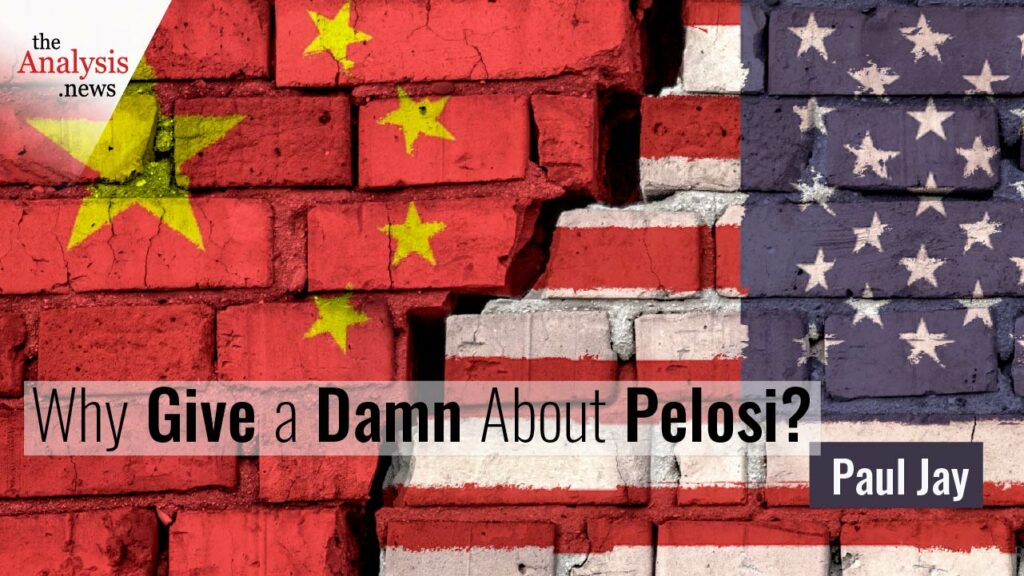
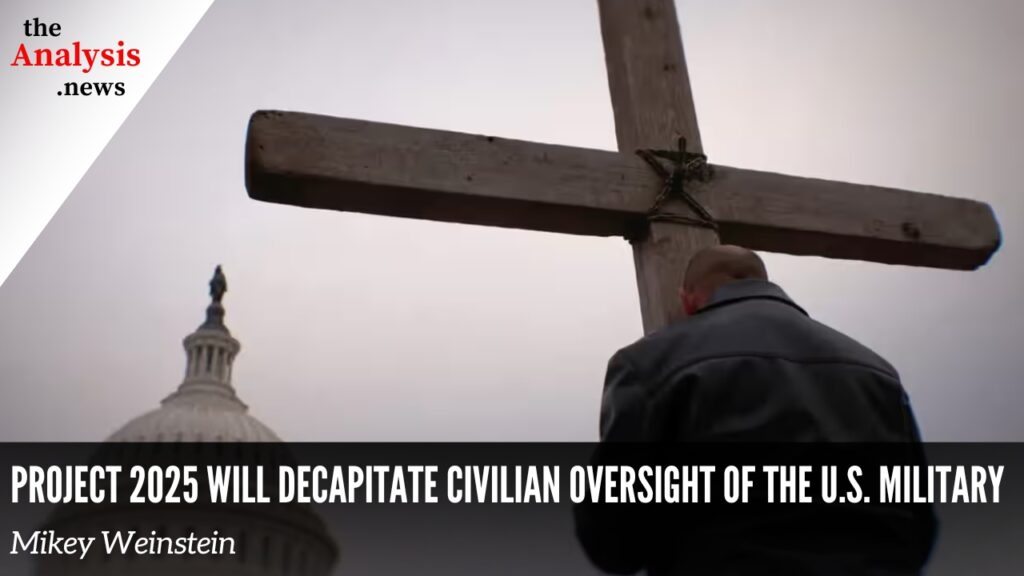
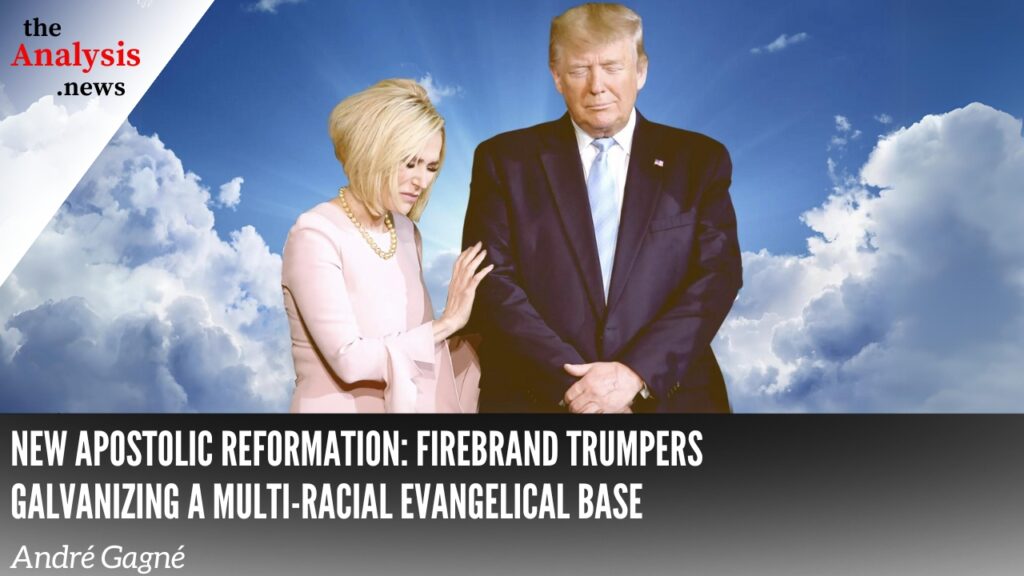
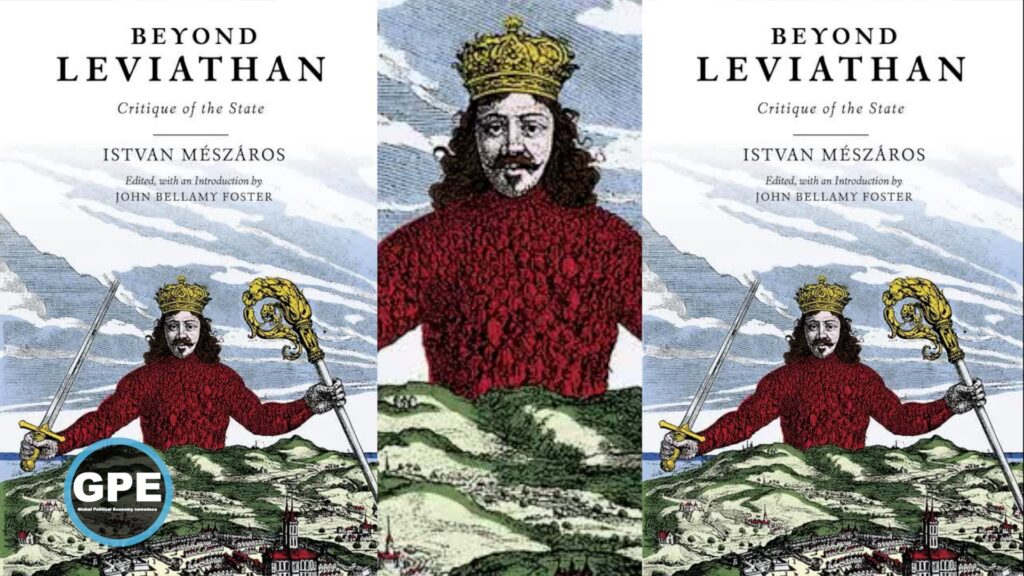
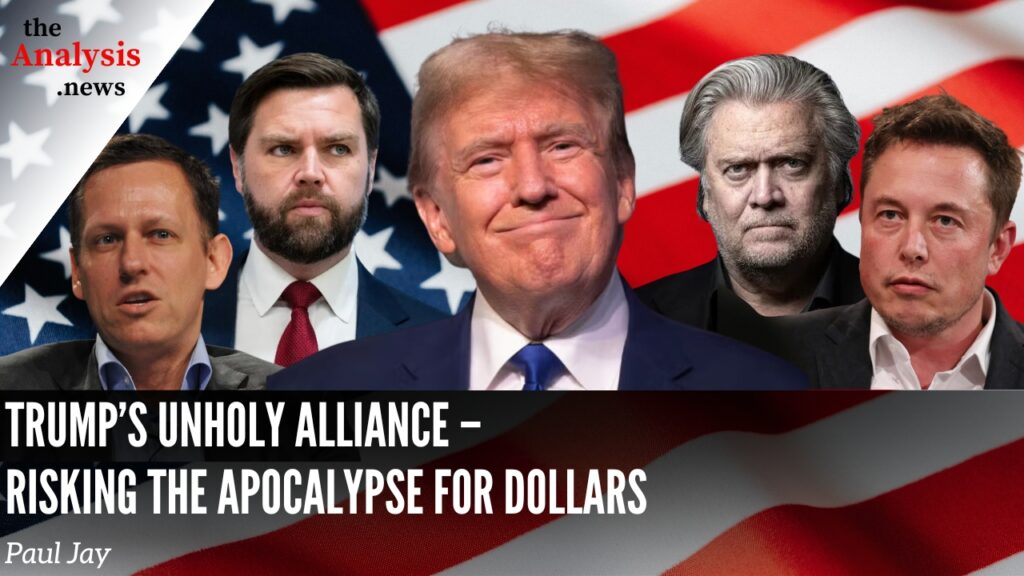
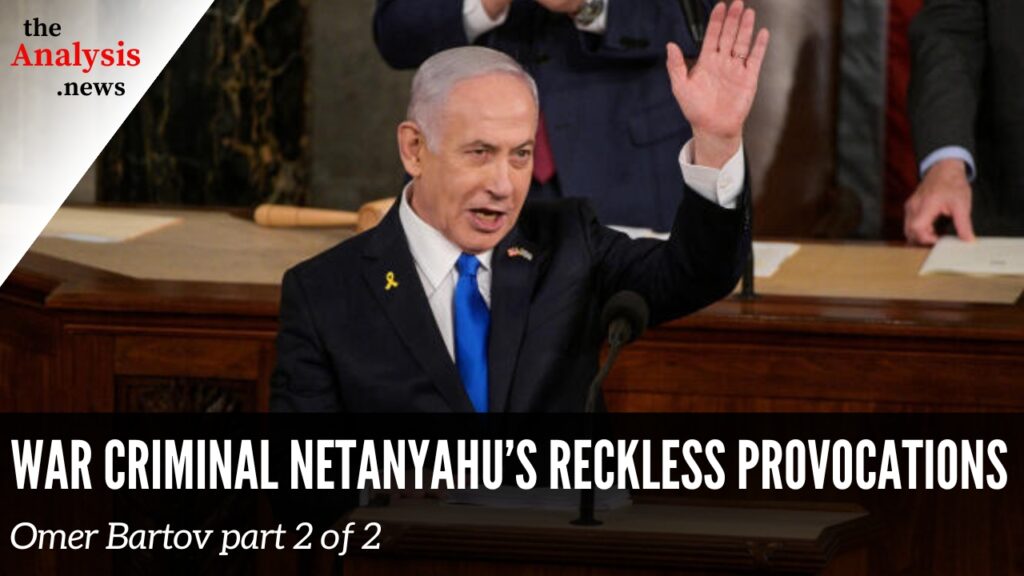

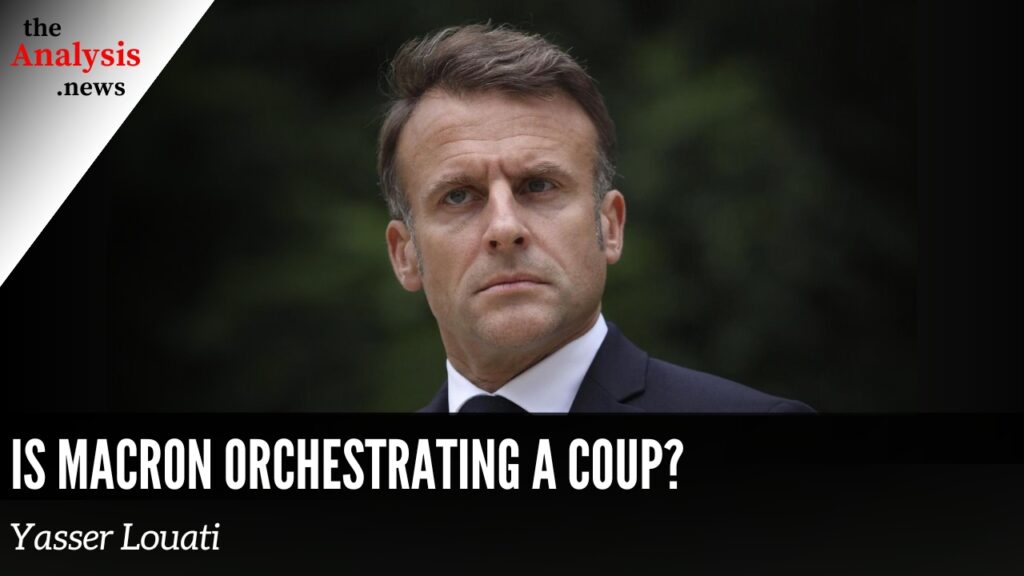

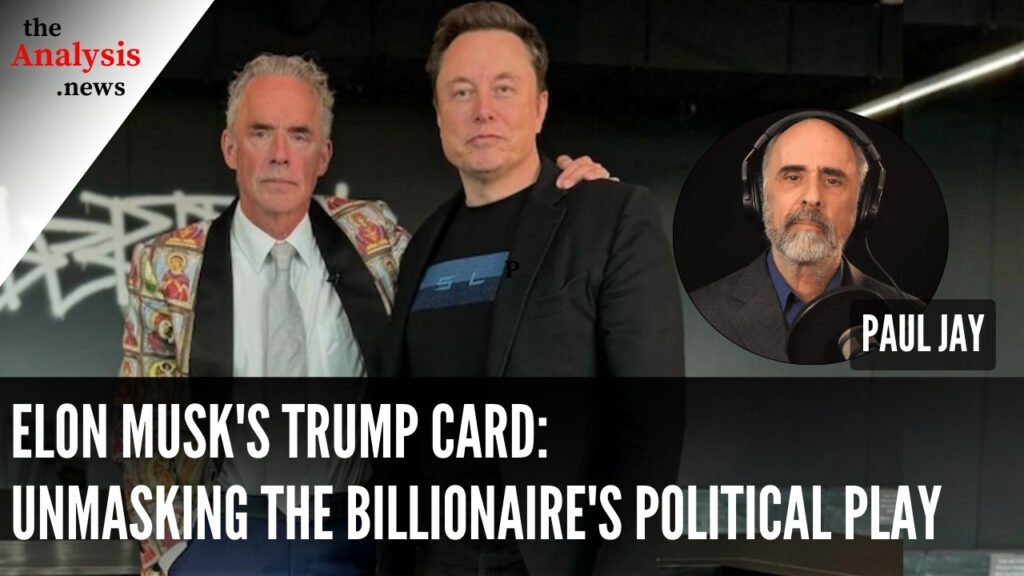

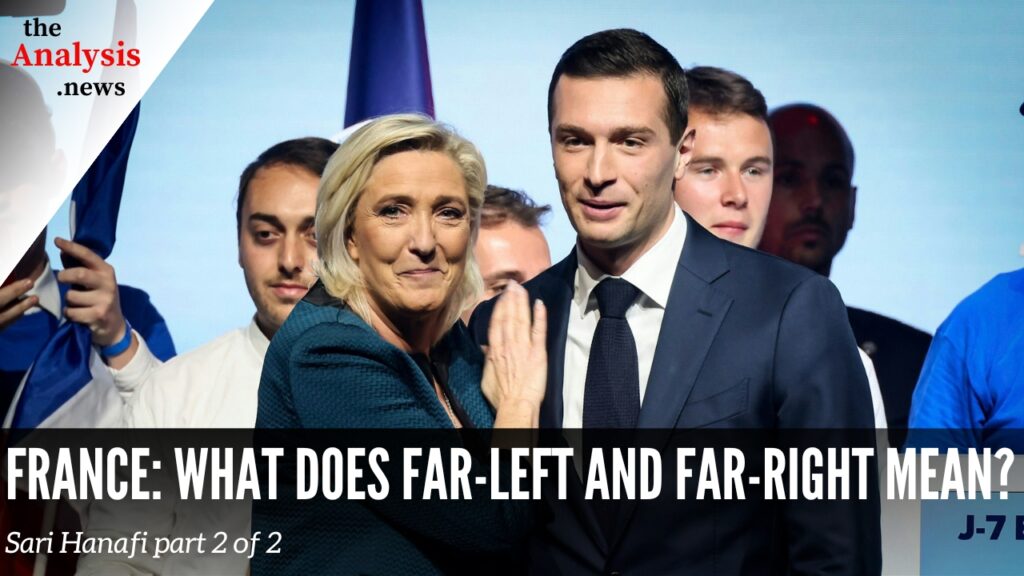
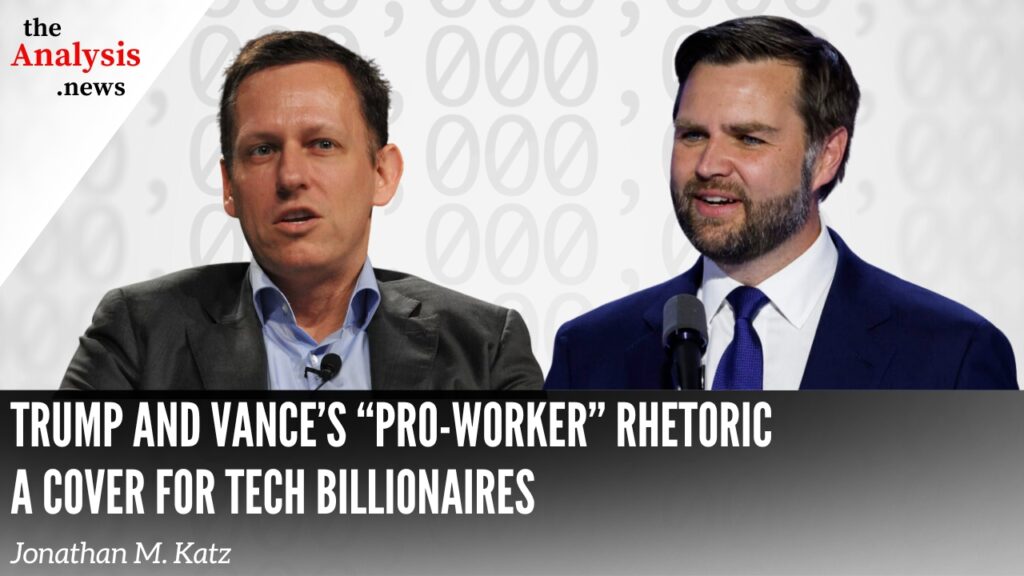
Hello;
Realistically, The growth of China pushes US foothold away from her territory. US knows he is losing the power, and the more lose means more limitation at global stage. It is a war and push the limits.
Cutting US foot hold in Tiwan Strate, means Chinese expansion. And it is coming.
After some study of Chinese history, I am well able to understand the importance to the Chinese people of what Paul Jay would call the subjective part of the present relationship between China and USA (as well as Canada). Symbols of disrespect matter and the symbols projected by the behavior of the USA (and Pelosi) are like the cymbals worn by the Teutonic Knights as they pillaged Novgorod. The symbols of the USA’s disrespect clash in Beijing like the cymbals on the ice covered Lake Novgorod. They would clash in the ears of my fellow, colonized Americans too, colonized by their MIC oligarchy, if we had suffered in the 20th century the humiliation of the Chinese in both 19th and the 20th centuries. We suffer the prostitution of our own political class while we inhale the opium of our MIC. The Chinese suffered from the foreign oligarchies of Great Britain, France, Germany, Russia, the USA (the most favored nation) and Japan. We all suffer from the MIC’s cymbals as they trample our futures beneath their hooves. The Chinese are no longer inhaling opium as we do. They remember what disrespect means. It means more than an uninvited hag.
I used cymbals metaphorically, as originally did the poet V. Lubovskoy, whose lyrics the great composer Prokovieff used to represent the arrogance of the Teutonic Knights as their armor clashed above the hard ice of Lake Novgorod.
Dwight D. Eisenhower, the hero of D-Day and SHAPE, who became President in 1953, puzzles me in only one regard, how could a man who seemed like such a fine product of the American heartland, a war hero, seemingly loyal to his wife, Maimy, have done such rotten things as President, including his support for the invader of Taiwan, Chiang kai-shek? Evaluating US Presidents after WW2 for their place on a scale of perfidy is very difficult for me. Each one seems like the worst when his record is reviewed. They seem to have become more rotten the more recently they have held office, but we are closer to those and what they have done is fresher in our minds. Together, they are and have been scoundrels, all, and have led to the present, the country that is the world’s chief source of terror and threat to the survival of human civilization.
I lived and worked in Taiwan for several months in the late `90s. Taiwan looked very much like a haven for international corporations with American, German and Japanese all at the forefront. If you didn’t speak Mandarin you could get by with English. In fact it seemed like everyone was trying to learn English. One thing I remember is that everyone you talked to would say how they had a family member that lived on the mainland. I also remember how most people feared that China would one day invade and take over. Hong Kong in 1997 was still fresh in the news. At the very least most people believed Taiwan would end up a client state like Shanghai and a place of international business for the corporations. Most people seemed very religious and you could see little Buddha lanterns in all the shops. The place seemed pretty chill except every once in a while you would come across this strong nationalist sentiment out of Taipei. At the time it made no sense to me it seemed like it was trying to impose a city state on the island. There’s around 1000 expatriates living there even today.
Chiang kai-shek was a murderous drug dealer. Nothing more, nothing less. We supported him as we support all dictators that are capitalist and anti-communist/socialist.
How many lives in America and other parts of the world were devastated by the heroin and opium that this man with the support of the CIA, of course, murdered.
People need to study history. You might wish to begin with The Politics of Heroin in S. East Asia by Alfred McCoy Youtube) and then move on to Douglas Valentine and his works on the CIA as Organized Crime and his other, which name escapes me, re: drugs and the drug war, historically.
All involved the murderous Chiang kai-shek, a tool of US imperialism much like Zelenskyy
Granted, the U.S.A. is a terrifying empire, with brilliant aspects of freedom, unseen in European conception for millennia. Pelosi does, Mr. Jay, have more sway on foreign policy of the U.S.A. than you, or me. Pelosi should visit the U.S. ally Taiwan, and the U.S.A. will back Taiwan 100% in war, which the U.S. salivates over. Pelosi is always brave, she gave the congressional gold medal to the Dalai Lama, and she should not care what the yammering red fascist PRC says, ever. PRC has got to go. The party has got to go. Just a disgusting mind slave society, like the U.S., but without the redeeming features. Just slave hell. What a drag. All current models lead to ecocide. (Vandana Shiva, Fukuoka, realistic sustainable models)
Love you Paul Jay, yet we need China to go down, hard. Unfortunately this is all a ploy, to make me say thus. Free Tibet. Free China, Free the human mind. Free Turtle Island. P.S. you read Mao, The Forbidden Story, Jan Chen(?)
You like what the PRC has done to Hong Kong? How the red fascists have lived up to their assurances?
There is no right side, save the revolutionary (anarchistic) side. Dear Paul, that was the movement, given us by the Algonquin Confederacy, that led conception to democracy and from 1940 to 1917 anarchism and then the counter revolution of red and white fascism that led us to our modern mind hell ecocide death cult mess.
Brothers and Sisters and non binary souls. Stand firm.